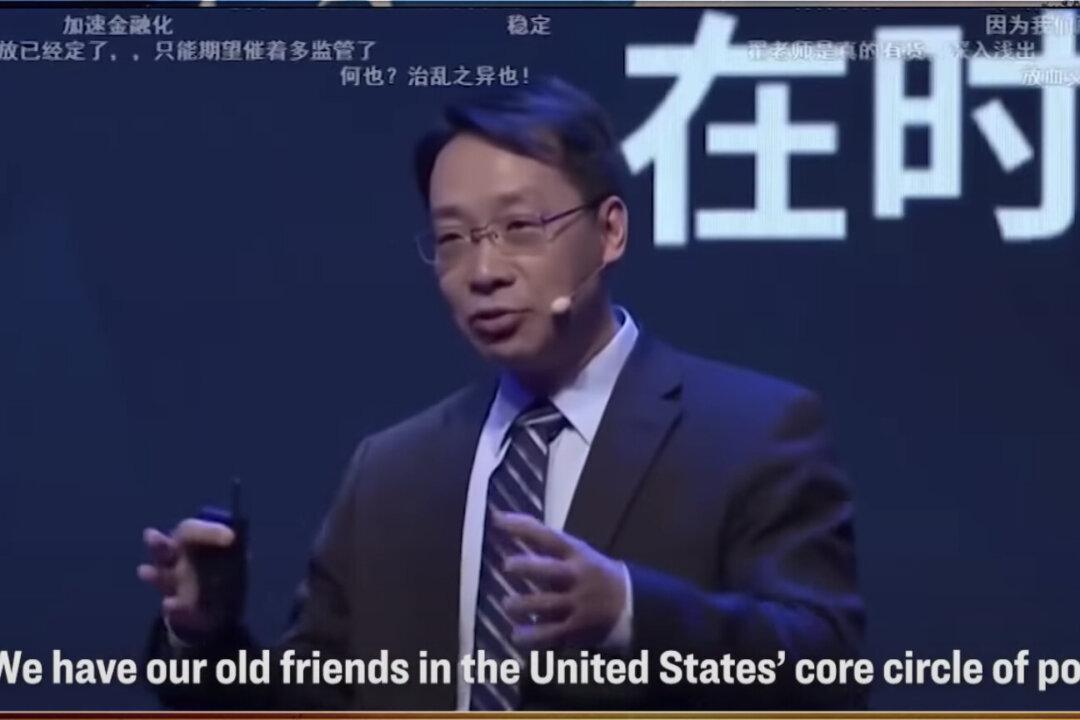The Chinese communist regime exerted influence over the United States for decades through its “old friends” in Wall Street, but this scheme was disrupted by President Donald Trump’s election in 2016, a Chinese professor recently revealed at a seminar.
Over the past 30 to 40 years, the Chinese Communist Party (CCP) “took advantage of the core power circle in the United States,” said Di Dongsheng, associate dean of the School of International Studies at the Renmin University of China in Beijing, in a speech given at an event in Shanghai, live-streamed on Chinese online video-sharing platform Guan Video on Nov. 28. The clip has since gone viral, and the original video has been deleted.





